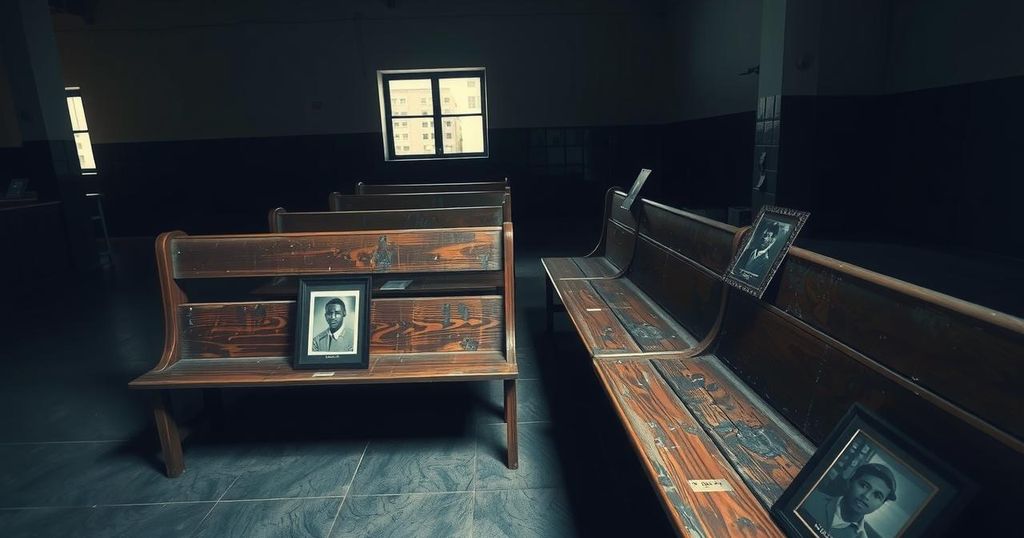Kenya’s Alarming Femicide Crisis: Seeking Justice for the Innocent
In Kenya, a woman is killed every two days, with 160 femicides reported in 2024. Families await justice as poor legal support and systemic corruption dominate. Activists like Beatrice Njeri and Wangu Kanja address these challenges, while victims’ families confront their grief. Urgent reforms are needed to foster safer environments and ensure accountability for gender-based violence.
In Kenya, a grave reality persists as a woman is murdered every two days, leading to devastating family experiences. In Nairobi’s police stations, grieving families await answers, clutching photos of their loved ones lost to violence. Tragically, 160 women were reported murdered in 2024, with January alone seeing 39 cases, though human rights groups suggest actual numbers may be considerably higher due to underreporting and misclassification of deaths.
The painful nature of these statistics is embodied in the story of Irene Wanja, who mourns her daughter Jane, a vibrant 25-year-old whose life was cut short. Jane’s murder remains unsolved, leaving Wanja in anguish, questioning, “How many more mothers have to mourn their daughters before something changes?” The situation highlights the ineffective implementation of existing laws designed to protect women, such as the Sexual Offenses Act and the Protection Against Domestic Violence Act, hampered by underfunded resources and corruption.
Beatrice Njeri, a lawyer representing victims’ families, elaborates on the systemic issues, stating, “Sometimes suspects walk free because of ‘insufficient evidence.’” Legal representation remains prohibitively expensive for many families, leaving them to navigate a system that prioritizes expediency over justice. Furthermore, societal pressures and threats often compel survivors of gender-based violence to remain silent.
In the absence of adequate legal support, grassroots organizations are emerging to fill the gap. Wangu Kanja, a survivor herself, operates a shelter offering crisis support to women fleeing violence. Despite the shelters providing essential services, Kanja emphasizes, “We receive distress calls every day, but we don’t have enough resources to help everyone.”
Evidently, Kenya suffers the highest femicide rate in the region, with 160 cases reported in 2024 compared to 127 in Uganda and 102 in Tanzania; however, lower rates in neighboring countries may not reflect actual safety, as many incidents go unreported. Both Njeri and Wanja advocate for systemic reforms, highlighting the need for forensic labs and better-equipped legal frameworks to address gender violence effectively.
Justice, as articulated by Wanja, Njeri, and Kanja, encompasses various dimensions, including enforcing accountability, improving legal resources, and ensuring safety for all women. Unfortunately, for many women in Kenya, the hope for justice remains a distant reality.
The ongoing tragedy of femicide in Kenya necessitates urgent attention and reform. With more than 160 women losing their lives in 2024, the call for effective legal protections, societal change, and grassroots support has never been more critical. Bridging the gap between victims’ families and the justice system requires systemic improvements, adequate resources, and a collective effort to guarantee safety and justice for every woman. Until these measures are implemented, the hope for justice will remain out of reach for many.
Original Source: www.inkl.com




Post Comment